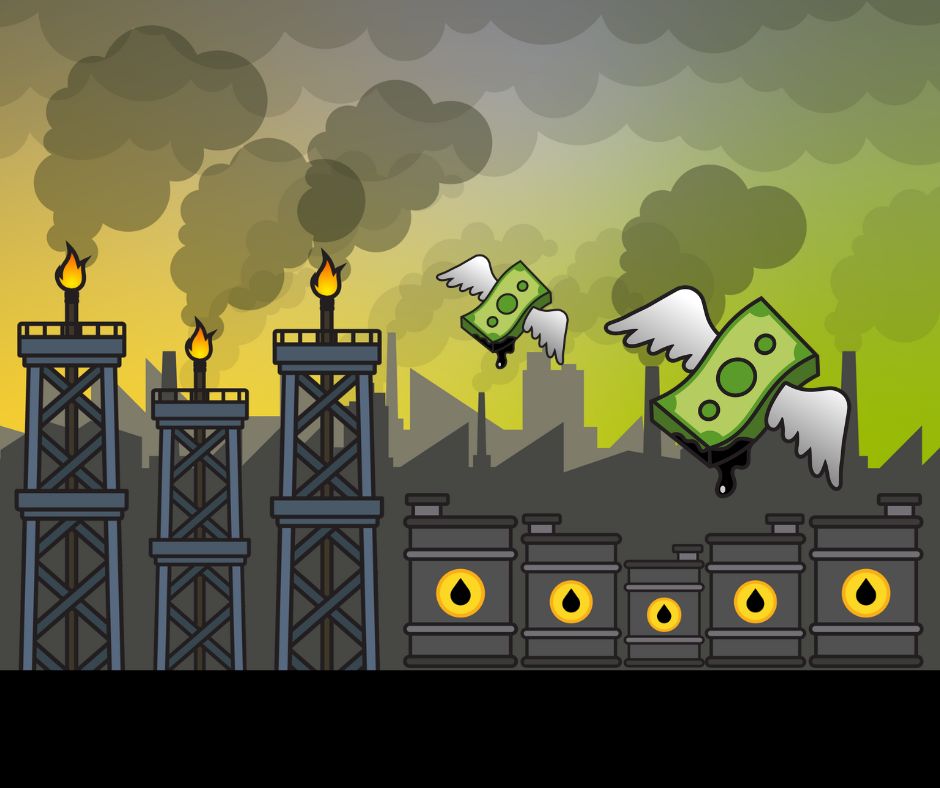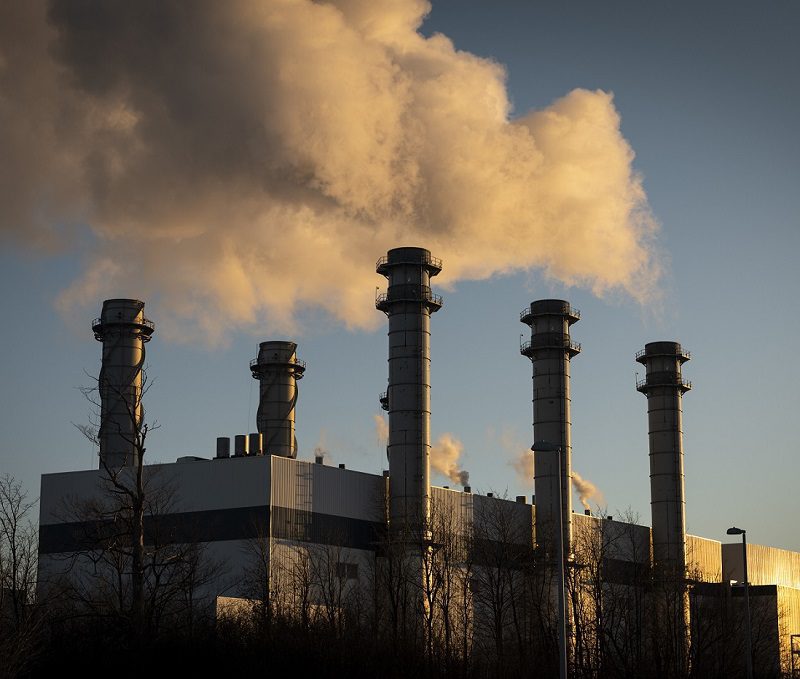The cost of living in Canada has left many households struggling with higher expenses. While multiple factors contribute to this financial strain, a significant yet often overlooked culprit behind the affordability crisis is the fossil fuel industry.
Fossil fuels are making life unaffordable for Canadians
Fossil fuel prices are volatile, and they have a pronounced impact on inflation. Between February 2021 and June 2022, the increase in oil, gas, fossil gas for home heating and recreational vehicle fuel prices directly contributed to 43 per cent of Canada’s overall inflation. When considering the indirect impacts of higher fossil fuel prices, the share is even higher. This stems from Canada’s heavy reliance on oil and gas, making the Canadian economy very susceptible to fossil fuel-driven inflation.
Oil and gas companies don’t just react to the global market, they actively rig the system by inflating prices and pocketing the difference. In recent years, 25 cents of every dollar of inflation has gone to oil, gas and mining extraction profits. From 2022 to the end of 2024, the increases in oil prices cost Canadians $200 billion. During the same period, oil company profits increased by $151 billion.
One would assume that the massive increase in profits for oil companies would trickle down to the workers, but that is not the case. The number of jobs in the industry as well as the wages for those jobs that remain are still lower than 2019 levels. Yet, the same fossil fuel companies that price-gouge and do little for the workforce want more of our hard-earned taxes to expand their operations.
Canadian households could be saving hundreds – if not thousands – of dollars a year by replacing fossil fuels with clean alternatives. Switching from a gas furnace to a heat pump can cut annual heating bills, while switching to electric vehicles can cut fuel and maintenance costs. But fossil fuel companies are working to stall these transitions. They’ve lobbied against the zero-emissions vehicle mandate, launched misinformation campaigns and pushed for more fossil fuel subsidies.
Tell the Canadian government to stand up to the oil and gas industry.
Food and Insurance costs are rising – and Fossil Fuels are to Blame
Oil and gas companies aren’t just driving up the cost of living by price gouging, they are doing so in all sorts of ways. If you have noticed your grocery bill getting more expensive, you aren’t alone. Climate change – driven by fossil fuel pollution – is making food more expensive. Unnatural weather events like droughts, wildfires and floods disrupt food production and supply chains, leading to higher prices at the checkout.
On top of that, the increase in costs of fossil fuels in recent years has also affected food production costs, which is passed on to the consumers. Fertilizer, transportation and processing are all energy-intensive, which means that every surge in oil and gas prices makes food more expensive.
The financial toll of climate change isn’t limited to food prices. Every flood, wildfire and storm pushes up the costs for Canadian households and businesses. One of the most immediate ways that people feel this impact is through rising insurance premiums.
Last year was the costliest year for insured damages due to unnatural weather events. The Insurance Bureau of Canada states that insurers paid $8.4 billion to cover the damages. This year, home insurance rates are likely to spike to cover last year’s payout, making life even more unaffordable.
Oil and Gas Pollution is Costing Canadians Money
Beyond direct costs, oil and gas pollution has widespread economic consequences. Air pollution for fossil fuel emissions leads to higher healthcare costs, lost productivity and environmental damages. These costs are borne by Canadians through taxes and higher medical expenses, while fossil fuel companies continue to pollute without paying their fair share.
Despite their role in driving climate change and inflating prices, oil and gas companies are heavily subsidized by governments in Canada. Instead of propping up an industry that is costing Canadians billions, those resources could be better spent on affordable, clean, renewable energy that benefits us all.
The Path Forward
Addressing the intertwined challenges of the affordability crisis and Canada’s over-dependence on fossil fuels requires Canada to make decisive changes:
- Increase Investments in Renewable Energy – Expanding wind, solar and hydro power can provide stable energy prices and reduce our vulnerability to shifting global markets.
- Replacing Fossil Fuels: Everyday essentials – from how we heat our homes to how we get around – are still tied to oil and gas. Investing in clean alternative options, such as heat pumps, accessible transit and electric vehicles, can cut pollution and costs for Canadians.
- Make Polluters Pay: Enforce strong and ambitious regulations that limit and reduce oil and gas pollution, while making polluters pay for costs of climate change that are currently being shouldered by Canadian households.
- End All Fossil Fuel Subsidies: Redirecting the billions of dollars that are spent annually on fossil fuel subsidies towards clean energy can reduce household costs,







